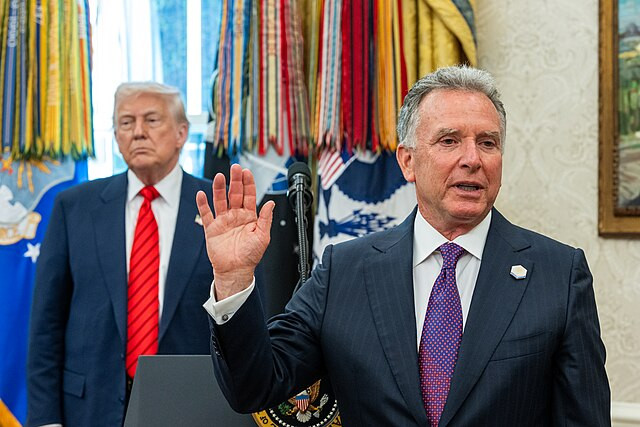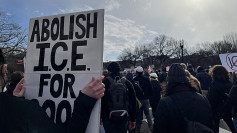President Donald Trump's special envoy to the Middle East, Steve Witkoff, visited a humanitarian aid site in Rafah, Gaza, on Friday amid intensifying international condemnation over Israel's blockade and what humanitarian agencies are calling a man-made famine. Witkoff's visit to the site operated by the Gaza Humanitarian Foundation comes as nearly 900 Palestinians have reportedly been killed by Israeli forces while attempting to access aid, according to United Nations estimates.
The U.N. Office for the Coordination of Humanitarian Affairs (OCHA) said a total of 1,353 Palestinians have been killed while seeking food, with 859 deaths occurring around Gaza Humanitarian Foundation (GHF) sites and 514 others along U.N. aid convoy routes. "We were met on the road by tens of thousands of hungry and desperate people who directly offloaded everything from the backs of our trucks," said Olga Cherevko, an OCHA spokesperson.
Human Rights Watch described the system as catastrophic. "U.S.-backed Israeli forces and private contractors have put in place a flawed, militarized aid distribution system that has turned aid distributions into regular bloodbaths," said Belkis Wille, associate crisis and conflict director at Human Rights Watch. "Israeli forces are not only deliberately starving Palestinian civilians, but they are now gunning them down almost every day as they desperately seek food for their families."
Witkoff, a former real estate lawyer with no foreign policy background, was accompanied by U.S. Ambassador to Israel Mike Huckabee. White House press secretary Karoline Leavitt said the two would "brief the president immediately after their visit to approve a final plan for food and aid distribution into the region."
While Israel claims its forces only fire warning shots near crowds and that GHF contractors use non-lethal means like pepper spray, videos released by the U.N. show gunfire ricocheting near aid convoys. Israel's military and Prime Minister Benjamin Netanyahu's office have not responded to requests for comment.
The aid sites, all located in Israeli-controlled zones, have become deadly flashpoints as food remains scarce in Gaza. The Integrated Food Security Phase Classification warned that "the worst-case scenario of famine is currently playing out in Gaza" after Israel blocked humanitarian aid for more than two months beginning in March. Though some aid has resumed since late May-averaging 70 trucks per day according to Israeli data-that remains far below the 500-600 daily trucks U.N. agencies say are needed.
International airdrops have resumed, but aid officials say they are insufficient to halt starvation and that convoy security has deteriorated. "The only way to reach a level of confidence is by having a sustained flow of aid over a period of time," said Cherevko.
Despite mounting casualties and accusations of using starvation as a weapon, Israeli officials continue to deny a hunger crisis in Gaza, instead blaming looting and mismanagement by Hamas and the U.N. Netanyahu has publicly rejected assertions that famine is occurring, while Trump has offered a more subdued response. "Oh, it's terrible what's occurring there, yeah, it's a terrible thing. People are very hungry," Trump said Thursday when asked about U.S. Representative Marjorie Taylor Greene's comments calling Israel's actions in Gaza a genocide.
The conflict began after Hamas attacked southern Israel on October 7, 2023, killing approximately 1,200 people and taking 251 hostages. Israel's retaliatory campaign has left more than 60,000 Palestinians dead, according to Gaza's Health Ministry, which the U.N. considers the most reliable casualty tracker despite its affiliation with the Hamas-run government.






